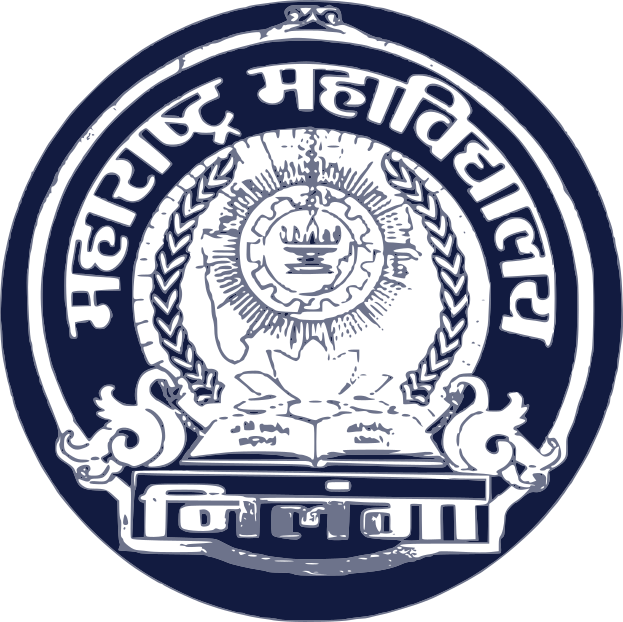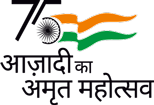About the Department:
The Department of Computer Science and Application offers programs of study related to computing, information technology and software design and application. Our programs involve interdepartmental, multi-institutional and inter-institutional collaboration and have attracted faculty members, undergraduate and graduate students from all over the world. Students may pursue full-time study leading to a Certificate in Computer Science or to B.C.A, M.Sc. degrees.
The Department currently offers B.C.A in Software System Development degrees in its undergraduate program, and M.Sc. (Computer Science) degrees in its graduate program. It also offers a two-year certificate program in computer science, for training or continuing education.
The Department operates a program in cooperative University education in the Three-year degree programs. Following the first two semesters of University courses, students spend alternate Three-month periods taking courses and working in fully salaried computer science related jobs with participating employers. Such a program may improve the student’s motivation and performance, and the practical experience gained may aid the student in choosing future areas of interest.
Vision
To impart applications oriented computer education to meet the industrial and societal needs and transform the nation to the holistic development.
Mission
To Train and mound the students and faculties to upgrade themselves to the trends of the computer applications and imbibe them in every academic activities of the department.
- The Computer Applications curriculum is dedicated to preparing students for productive careers in the competitive world.
- Effective use and implement Applications and software technologies that provide computing solutions to address the needs of an organization.
- To Act as a bridge between academic and industry by involving the industry needs in every aspects of learning and training.
- Apply basic cultural, social, legal, and ethical practices inherent in the discipline of computer applications.
- Faculty
-
Sr. NO. NAME OF THE FACULY DESIGNATION DATE OF JOINING EXPERIENCE C.V. Photo 1 Mr.Madarse Ravindra Shivajirao Asst prof & Head 23-07-2007 18 Years Resume 
2 Mr.Patil Girish Shivajirao Assistant Professor 01-07-2009 16 Years Resume 
3 Ms.Shahapure Shubhangi Shivaji Assistant Professor 01-07-2014 10 Years Ms.Shahapure S S 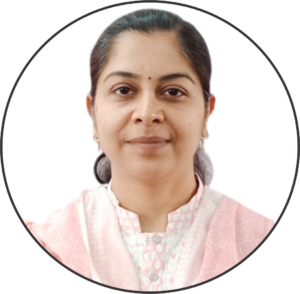
4 Mr.kiwade Dhanraj Suresh Assistant Professor 01-07-2015 9 Years Resume 
5 Mr.Shinde Mayur Wamanrao Assistant Professor 01-07-2015 9Years Shinde M W 
6 Miss Girigosavi Anita Assistant Professor 10-06/2024 06 Months AnitaGCV 7 Miss.Patil Jyoti Suryakant Assistant Professor 10-06-2024 06 Months CV PJS Programme Outcomes – BCA (Science)
- Technical applications: The programme facilitates graduates to use and apply current technical concepts and practices in the core computer applications.
- Problem solving approach: Learners can identify computer application related problems, analyze them and design systems or provide solutions for problems related with legal, ethical and societal issues .
- Empowerment: The programme empowers graduates for competitive examinations and higher studies.
- Communication and managerial skills: Students can work and communicate effectively in interdisciplinary environment as independently or in team, and demonstrate scientific leadership in academic and industry .
- Professional skills: Learners recognize need and ability to engage in continuing professional development .
- Skilled for resource human industry and entrepreneurship: The programme assists to produce skill oriented human resource.
- Practical approach: The programme imparts practical skills.
Syllabus
Year Sub. Code Subject Name BCA -I BCA-101 Fundamentals of Computer Science and Information Technology BCA -I BCA-102 Office Automation BCA -I BCA-103 Programming in C BCA -I BCA-104A Element of Statistics BCA -I BCA-105 B Applied English OR Business Communication BCA -I BCA-106 Lab Course-1 (C Programming) BCA -I S1.Lab2 Lab Course-2 (Office Automation BCA -I BCA-201 Java Script BCA -I BCA-202 Graphics Design And Content Management Tools BCA -I BCA-203 Web Technology BCA -I BCA-204A E-Commerce BCA -I BCA- 205B Functional English OR Corporate English BCA -I BCA-206 Lab Course-Java Script BCA -I BCA-207 Lab Course-Web Technology BCA -II BCA-301 Programming in C++ BCA -II BCA-302 Operating System Concepts BCA -II BCA-303 Data Base Management System BCA -II BCA-304A Introduction to Multimedia BCA -II BCA-305 A Numerical Aptitude BCA -II BCA-306 Lab Course-C++ Programming BCA -II BCA-307 Lab Course-DBMS BCA -II BCA-401 Programming in JAVA BCA -II BCA-402 Data Structure and Algorithm BCA -II BCA-403 RDBMS BCA -II BCA-404A Computer Graphics BCA -II BCA-405B Logical Reasoning BCA -II BCA-406 Lab Course-JAVA Programming BCA -II BCA-407 Lab Course-RDBMS BCA -III BCA-501 System Analysis and Design (SAAD) BCA -III BCA-502 Web Development and PHP Programming BCA -III BCA-503 Mobile Application Development BCA -III BCA-504-A Computer Network BCA -III BCA-505-B Linux Operating System BCA -III BCA-506 Lab- PHP Programming BCA -III BCA-507 Lab- Mobile Application Development BCA -III BCA-601 Software Engineering BCA -III BCA-602 Python BCA -III BCA-603 Project Development activity and Seminar BCA -III BCA-604-A Windows Programming BCA -III BCA-605-B Cyber Security BCA -III BCA-606 Lab- Python BCA -III BCA-607 Lab- Windows Programming and DIP Department of BCA
About the Department:
The Department of Computer Science and Application offers programs of study related to computing, information technology and software design and application. Our programs involve interdepartmental, multi-institutional and inter-institutional collaboration and have attracted faculty members, undergraduate and graduate students from all over the world. Students may pursue full-time study leading to a Certificate in Computer Science or to B.C.A, degrees.
The Department currently offers B.C.A in Software System Development degrees in its undergraduate program. It also offers a two-year certificate program in computer science, for training or continuing education.
The Department operates a program in cooperative University education in the Three-year degree programs. Following the first two semesters of University courses, students spend alternate Three-month periods taking courses and working in fully salaried computer science related jobs with participating employers. Such a program may improve the student’s motivation and performance, and the practical experience gained may aid the student in choosing future areas of interest.
Vision
To impart applications oriented computer education to meet the industrial and societal needs and transform the nation to the holistic development.
Mission
To Train and mound the students and faculties to upgrade themselves to the trends of the computer applications and imbibe them in every academic activities of the department.
- The Computer Applications curriculum is dedicated to preparing students for productive careers in the competitive world.
- Effective use and implement Applications and software technologies that provide computing solutions to address the needs of an organization.
- To Act as a bridge between academic and industry by involving the industry needs in every aspects of learning and training.
- Apply basic cultural, social, legal, and ethical practices inherent in the discipline of computer applications.
- PROGRAMMES OFFERED
Sr. No. Faculty In-take Capacity Duration Programme Outcomes 1. BCA 80 03 Years 06 Semesters
Name of Subject-Fundamentals of Computer Science and Information Technology
Outcome
1.To learn Basic Function of Devices like I/O, HDD etc. To Understand the Fundamental of Software and Hardware.
2.Understand the Concept of Operating System and Network
Name of Subject -Office Automation Outcomes
After completion of this course student will be able to understand the computer software, hardware, made available to simplify and automate a variety of office operations such as data processing, data manipulating and data presentation with
various application those are presents in Microsoft office tools packages
Name of Subject -Programming in C
Outcomes
1. To study of structure of programming languages, structure of c program.
2. To study different keyword for making program.
3. To develop programs using operators and control statement.
4. To describe an array, structure, union, string and functions.
5. Student are able to develop application software
2. M.Sc.(CS) 30 02 Years 04 Semesters
M.Sc. Computer Science (affiliated colleges) M.Sc.(CS) F. Y. (Semester I)
SCMPSC-401 Computer Architecture and Microprocessor
Course Outcomes:
After successful completion of this course, students should be able to:
i. Students will acquire skill of Assembly Language programming using 8086 Microprocessor
ii. Student will be familiar with Internal Processing of Computers.
M.Sc.(CS) F. Y. (Semester I)
SCMPSC-402 Python Programming
Course Outcomes:
After successful completion of this course, learner will be able to
1. Write programs using Python programming constructs.
2. Design and Develop applications using Python programming.
3. Design object oriented programs with Python classes.
4. Use exception handling in Python applications for error handling.
5. Design and Develop applications connecting with database.
M.Sc.(CS) F. Y. (Semester I)
SCMPSC-403 Advanced Java
Course Outcomes:
After successful completion of this course, students should be able to:
i. Create dynamic and interactive web sites and interaction with client and server.
ii. Do server side programming with java Servlets and JSP.
iii. Implement different data structure using collection framework.
M.Sc.(CS) F. Y. (Semester I)
SCMPSE-401A Data Analytic with Power BI
Course Outcomes:
After successful completion of this course, students should be able to:
i. Publish a desktop report to the Power BI Service
ii. Identify common challenges in Power BI data models, implement smart solutions, and
avoid common mistakes
M.Sc.(CS) F. Y. (Semester I)
SCMPSE-401B Statistical Method
Course Outcomes:
i. Understand the have the basic knowledge on data collection and various statistical
elementary tools.
ii. Have the critical thinking in the theory of probability and its applications in real life
problems
M.Sc.(CS) F. Y. (Semester I)
SCMPSE-401C Web Technology
Course Outcomes:
i. Describe the concepts of WWW including browser and HTTP protocol.
ii. List the various HTML tags and use them to develop the user friendly web pages.
iii. Define the CSS with its types and use them to provide the styles to the web pages at
various levels.
iv. Develop the modern web pages using the HTML and CSS features with different
layouts as per need of applications.
v. Use the JavaScript to develop the dynamic web pages.
vi. Use server side scripting with PHP to generate the web pages dynamically using the
database connectivity.
M.Sc.(CS) F. Y. (Semester I)
SVECR-401 Research Methodology
Course Outcomes
· Students who complete this course will be able to understand and comprehend the basics
in research methodology and applying them in research/ project work.
· This course will help them to select an appropriate research design.
· With the help of this course, students will be able to take up and implement a research project/ study.
· The course will also enable them to collect the data, edit it properly and analyse it accordingly. Thus, it will facilitate students’ prosperity in higher education.
· The Students will develop skills in qualitative and quantitative data analysis and presentation.
· Students will be able to demonstrate the ability to choose methods appropriate to research objectives.
M.Sc.(CS) F. Y. (Semester II)
SCMPSC-451 Mobile Application Development with Kotlin
Course Outcomes:
By the end of the course, student will be able to write simple GUI applications, use built-in
widgets and components, work with the database to store data locally, and much more.
M.Sc.(CS) F. Y. (Semester II)
SCMPSC-452 Cloud Computing
COURSE OUTCOMES
1. After successful completion of this course, student will be able to Explain the core concepts
of the cloud computing paradigm: how and why this paradigm shift came about, the
characteristics, advantages and challenges brought about by the various models and services
in cloud computing.
2. Apply the fundamental concepts in datacenters to understand the tradeoffs in power,
efficiency and cost.
3. Identify resource management fundamentals, i.e. resource abstraction, sharing and
sandboxing and outline their role in managing infrastructure in cloud computing.
4. Analyze various cloud programming models and apply them to solve problems on the cloud.
M.Sc.(CS) F. Y. (Semester II)
SCMPSC-453 NoSQL with MongoDB
Course Outcomes
Upon completion of this course, learners should be able to:
1. Define, compare and use the four types of NoSQL Databases (Documentoriented,
KeyValue Pairs, Column-oriented and Graph).
2. Demonstrate an understanding of the detailed architecture, define objects, load
data, query data and performance tune Column-oriented NoSQL databases.
3. Explain the detailed architecture, define objects, load data, query data and
performance tune Document-oriented NoSQL databases.
4. Demonstrate an understanding of the detailed architecture, define objects, load
data, query data and performance tune Key-Value Pair NoSQL databases.
5. Explain the detailed architecture, define objects, load data, query data and
performance tune Graph NoSQL databases.
6. Evaluate NoSQL database development tools and programming languages.
7. Perform hands-on NoSql database lab assignments that will allow students to use the four NoSQL database types via products such as Cassandra, Hadoop Hbase, MongoDB, Neo4J and Riak.
M.Sc.(CS) F. Y. (Semester II)
SCMPSE-451A Data Structure
Course Outcomes:
After successful completion of this course, students should be able to:
i. Ability to analyze algorithms and algorithm correctness.
ii. Ability to summarize searching and sorting techniques
iii. Ability to describe stack, queue and linked list operation.
Ability to have knowledge of tree and graphs concepts.
M.Sc.(CS) F. Y. (Semester II)
SCMPSE-451B Software Testing
Course Outcomes:
1. At the end of the course the students will be able to Design test cases suitable for a software
development for different domains.
2. Identify suitable tests to be carried out and prepare test planning based on the document.
3. Document test plans and test cases designed and Use of automatic testing tools.
M.Sc.(CS) F. Y. (Semester II)
SCMPSE-451C PHP and MySQL
Outcomes:
· Able to design dynamic and interactive web pages, websites.
· Able to run PHP scripts on server and retrieve results.
· Able to handle databases like MySQL using PHP in web sites.
Second Year M.Sc. (Computer Science)*
(Revised CBCS pattern)
Introduced from Academic Year 2020-2021
Course Code: CS-301
Course Title: Advance Database Administration
Course Outcomes:
Students Will be able to explain and evaluate the fundamental theories and requirements that
influence the design of modern database systems. Students can analyze the background
processes involved in queries and transactions, andexplain how these impact on database
operation and design
Course Code: CS-302
Course Title:Web-Technologies
Course Outcome
Students Will be Students are able to develop a dynamic webpage by the use of PHP and java
script. On completion
Course Code: CS-303
Course Title:Data Mining & Data Warehousing
Course Outcome:
Students Will be Understand Data Warehouse fundamentals, Data Mining Principles.
Identify appropriate data mining algorithms to solve real world problems
Course Code: CS-304(A)
Course Title:Artificial Intelligence
Course Outcome:
Students will be able to compare AI with human intelligence and traditional information
processing and discuss its strengths and limitations as well as its application to complex and
human-centered problems.
Students Will be able to apply the basic principles, models, and algorithms of AI to
recognize, model, and solve problems in the analysis and design of information systems
Course Code: CS-304(B)
Course Title:Mobile Application Development
Course Outcome:
Student will be able to write simple GUI applications.
Students will be also able to use built-in widgets and components, work with the database
tostore data locally.
Course Code: CS-304(C)
Course Title:Research Methodology
Course Outcome:
Students Will be demonstrate knowledge of research processes (reading, evaluating, and
developing), Perform literature reviews using print and online databases.
Course Code: CS-307-B
Course Title:Cyber Security
Course Outcome:
Students will understand principles of web security.
Students will understand key terms and concepts in cyber law, intellectual property and
cybercrimes, trademarks and domain theft.
Course Code: CS-308
Course Title:SK-03 Seminar Presentation Activity
Course Outcome:
Help the student increase self-motivation, personal responsibility, and understanding of his or
her role in being an informed participant in the educational process.
Create an environment that helps the student establish healthy relationships and support
networks.
Course Code: CS-401
Course Title:Digital Image Processing
Course Outcome:
Students will be Analyze images in the frequency domain using various transforms.
Evaluate the techniques for image enhancement and image restoration and also categorize
Course Code: CS-402
Course Title:Linux Administration
Course Outcome:
Students will be able carry the duties of a Unix system administer.
Students will learn to do file processing, process management, IO management, queues
management, networking, storage backup, account management, proper system start-up and
shutting down, as well as other tasks.
Course Code: CS-403
Course Title: Major Project development Activity
Course Outcome:
Project based learning will increase their capacity and learning through shared cognition.
Students will have an ability to identify, formulate and implement computing solutions.
Students will be able to design a system, component or process as per needs and
Specification
Course Code: CS-404-A
Course Title:Client Server Technology
Course Outcome:
Gain Exposure on most common used servers.
Understand the concept of client-server development and learn problem solving skills
Course Code: CS-404-B
Course Title:Software Testing Tools
Course Outcome:
At the end of the course the students will be able to Design test cases suitable for a software
development for different domains.Identify suitable tests to be carried out and prepare test
planning based on the document.Document test plans and test cases designed and Use of
automatic testing tools.
Course Code: CS-407-B
Course Title:Logical Reasoning and Quantitative Aptitude
Course Outcome:
Understand the basic concepts of QUANTITATIVE ABILITY and LOGICAL REASONING
Skills, acquire satisfactory competency in use of VERBAL REASONING and Solve campus
placements aptitude papers covering Quantitative Ability, Logical Reasoning and Verbal
Ability
- Students’ Achievements/ Merits
Sr. No. Academic Year Seat Number Name of the Student % % or Award or Achievement 1 2019-20 DB35450 1. JADHAV SANGITA BALAJI 81.52 University First Merit in M.Sc(Computer Science)
DB35451 1. JADHAV SHRADHA SANJAY 80.84 University Second Merit in M.Sc(Computer Science)
ZF2291 1. JADHAV SARIKA SHESHERAO 83.50 University Second Merit in BCA
2 2020-21 DB44373 1. BOYNE SHITAL DILIPRAO 89.80 University Third Merit in M.Sc(Computer Science)
2. 3. 3 2021-22 ZI4685 1. DIVE YASHODA RAM 90.75 University First Merit in BCA
2. 3. 4 2022-23 1. 2. 3. 5 2023-24 BCA Results Sr.No. Academic Year No. of Students Enrolled No. of Students Appeared for Exam Passed Failed Percentage of Result 1 2019-20 76 76 47 29 62% 2 2020-21 99 99 94 5 94% 3 2021-22 108 108 107 1 99% 4 2022-23 75 75 47 28 63% 5 2023-24 84 84 M.Sc. Results Sr.No. Academic Year No. of Students Enrolled No. of Students Appeared for Exam Passed Failed Percentage of Result 1 2019-20 16 16 16 Nil 100% 2 2020-21 18 18 16 2 89% 3 2021-22 8 8 8 Nil 100% 4 2022-23 32 32 31 1 97% 5 2023-24 31 30 - Best Practices of the Department
Sr. No. Title of the Best Practice Photos Studay Tour Tour Photo 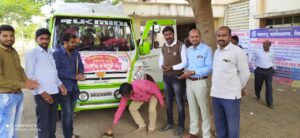
1 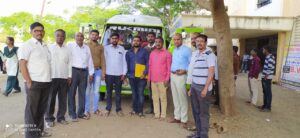
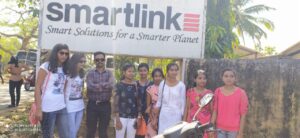
2 Poster Presentation 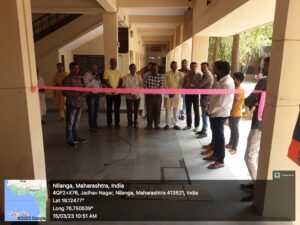
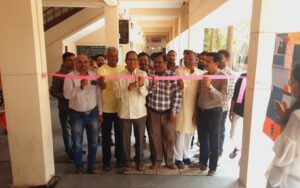
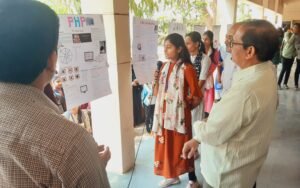
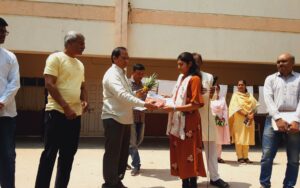
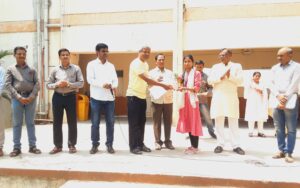
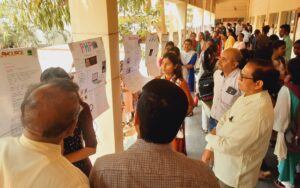
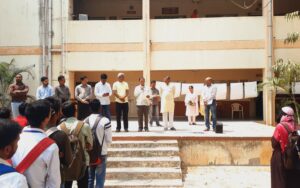
Sr.No Title of Report Name of the Teacher Link of Report 1 ICT Class Mr.Madarse R S Madarse ICT 2 ICT Class Mr.Patil G S patil sir 3 ICT Class Ms.Shahapure S S shahapure mam 4 ICT Class Mr.Kiwde D S Kiwde sir 5 ICT Class Mr.Shinde MW https://mmnilanga.org/wp-content/uploads/2024/06/GuestLecture2024.pdfMayur ICT 6 Poster Presentation Mr.Shinde MW poster presentation 7 Guest Lecture Dr.Menkudele GuestLecture2024
